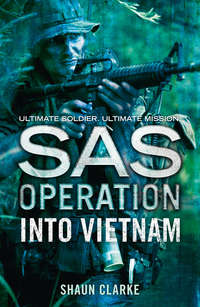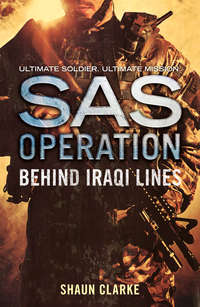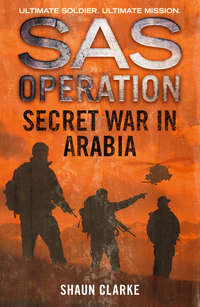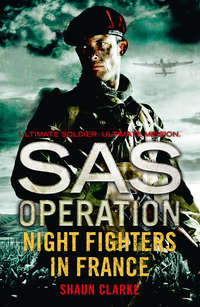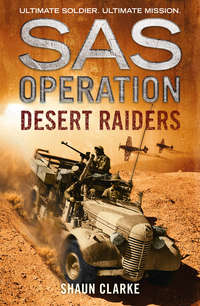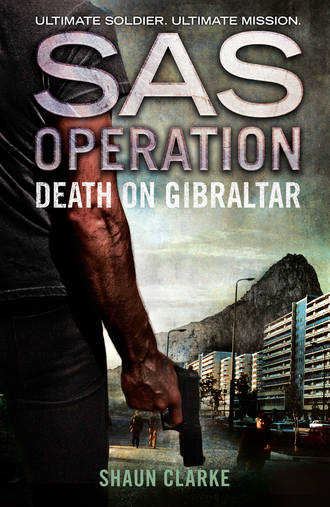
Полная версия
Death on Gibraltar
‘Ach, sure that’s good!’ he said.
When Tyrone, another hard man, had responded with a thin, humourless smile, Mad Dan nodded towards the front door and said: ‘I see the Brits have some OPs on the roof. Do they do any damage?’
‘Aye. They’re equipped with computers linked to vehicle-registration and suspect-information centres, as well as to surveillance cameras. Also, the shites’ high visibility reminds us of their presence and so places a quare few constraints on us. At the same time, the OPs allow members of regular Brit units and 14 Intelligence Company to observe suspects and see who their associates are. This in turn allows the shites collecting intelligence at Lisburn and Brit HQ to investigate links between meetings of individuals and our subsequent group activities. So, aye, those bastard OPs can do us lots of damage.’
‘Sure, that’s a hell of a mouthful, Pat.’
‘Sure, it’s also the truth.’
‘Do those OPs have any back up?’ Mad Dan asked.
‘Ackaye’. Each of ’em’s backed up with another consisting of two to four soldiers and located near enough to offer immediate firearms support. If that weren’t enough, those two OPs are backed up by a QRF…’
‘Sure, what’s that if you’d be writin’ home?’
‘A Quick Reaction Force of soldiers or police, sometimes both, located at the nearest convenient SF base. And that QRF will respond immediately to a radio call for help from the OPs. So, no, they’re not alone, Dan. Those Brit bastards up there have a lot of support.’
Mad Dan nodded, indicating he understood, but really he wasn’t all that interested. He was there to receive specific instructions for the forthcoming evening. It was what he now lived for.
‘So what is it?’ he asked.
‘A double hit,’ Tyrone informed him. ‘A bit of weedin’ in the garden. Two bastards that have to be put down to put them out of their misery.’
‘A decent thought,’ Mad Dan said. ‘Now who would they be, then?’
Tyrone had another sip of his Guinness, then took a deep breath. ‘Detective Sergeants Michael Malone and Ernest Carson.’
‘Two bastards, right enough,’ Mad Dan said. ‘Sure, that’s a quare good choice. Tonight, is it?’
‘Aye. They’ll be in the Liverpool Bar for a meetin’ from eight o’clock on. Just walk in there and do as you see fit. We’ve no brief other than that. Just make sure they stop breathin’.’
‘Any security?’
‘None. The dumb shites think they’re in neutral territory, so they’re there for nothin’ else but a quare ol’ time. Let the bastards die happy.’
‘Weapon?’
‘I’ll give it to you outside. A 9mm Browning, removed from an SAS bastard killed back in ’76. Appropriate, right?’
‘Ackaye, real appropriate. Let’s go get it an’ then I’ll be off.’
‘Sure, I knew you’d say that.’
After finishing their drinks in a leisurely manner, the two men left the bar. Glancing up at the OPs and fully aware that the pub was under surveillance, Tyrone led Mad Dan along the street and up the concrete steps of the grim block of flats. He stopped on the gloomy landing, where the steps turned back in the other direction to lead up to the first balcony. There, out of sight of the spying Brits, he removed the Browning and handed it to Mad Dan, along with a fourteen-round magazine.
‘That’s the only ammunition you’re gettin’,’ he said, ‘because you’ve only got time for one round before hightailing it out of there. That also means you’ve no time for mistakes, so make sure you get them fucks.’
‘Sure, that’s no problem at all, Pat. I’ll riddle the bastards and be out of there before they hit the floorboards.’
‘Aye, make sure you do that.’ Tyrone glanced up and down the stairs, checking that no one was coming. ‘So,’ he said, ‘I’m goin’ home for a bite. Off you go. Best of luck. I’ll see you back in the bar in forty minutes.’
‘I’ll be there,’ Mad Dan said.
As Tyrone turned away to go up the steps to his mean flat on the first floor, Mad Dan loaded the magazine into the Browning, then tucked the weapon carefully down the back of his trousers, between the belt and his shirt, hidden under the jacket but where he could reach round and pull it out quickly. He walked back down the stairs and out into the street, in full view of the OPs up above. Bold as brass, he walked alongside the waste ground as the street lights came on to illuminate the dark evening. Emerging into the busy Falls Road, he turned right and walked down the crowded pavement until he reached the nearest parked car. When he bent down to talk to the driver, he was recognized instantly.
‘Sure, how did it go, Dan?’
‘You know Tyrone. Eyes like cold fried eggs and yammerin’ on about the Brits, but he gave me the go-ahead and the weapon.’ Mad Dan checked his watch. It was five past eight. ‘They’ll be in the Liverpool Bar and they should be there now. So, come on, let’s get goin’, lad.’
When Mad Dan had slipped into the seat beside the driver, the latter said: ‘Sure, would that be the Liverpool Bar on Donegall Quay?’
‘Aye, that’s the one. Drop me off there, keep the engine tickin’ over, and get ready to hightail it out of there when I come runnin’ out. Then don’t stop for anything.’
‘I’ll be out of there like a bat out of hell. Sure, you’ve no need to worry, Dan.’
‘Just make sure of that, boyo.’
As the car moved off, heading along the Falls Road in the direction of Divis Street, Mad Dan felt perfectly relaxed and passed the time by gazing out of the window at the hated RUC constables and British Army soldiers manning the barricaded police stations and checkpoints. He had no need to feel concerned about the car being identified because it had been hijacked at gunpoint on a road just outside the city, and the driver warned not to report the theft until the following day. The stolen car would be abandoned shortly after the attack and, when found unattended, it would be blown up by the SF as a potential car bomb. The unfortunate owner, if outraged, at least could count himself lucky that he still had his life. To lose your car in this manner was par for the course in Northern Ireland.
It took no time at all for the driver to make his way from Divis Street down past the Clock Tower, along Queen’s Square and into Donegall Quay, which ran alongside the bleak docks of the harbour, where idle cranes loomed over the water, their hooks, swinging slightly in the wind blowing in from the sea. On one side the harbour walls rose out of the filthy black water, stained a dirty brown by years of salt water and the elements; on the other were ugly warehouses and Victorian buildings. Tucked between some of the latter was the Liverpool Bar, so called because the Belfast-Liverpool ferries left from the nearby Irish Sea Ferry Terminal.
The driver stopped the car in a dark alley near the pub, out of sight of the armed RUC constables and British soldiers guarding the docks at the other side of the main road. He switched his headlights off, slipped into neutral, and kept the engine ticking over quietly.
Mad Dan opened the door, clambered out of the car, hurried along the alley and turned left into Donegall Quay. There he slowed down and walked in a more leisurely manner to the front door of the Liverpool Bar, not even looking at the soldiers guarding the terminal across the road. Without hesitation, he opened the door and went inside.
Even as the door was swinging closed behind him, he saw the two well-known policemen, Detective Sergeants Michael Malone and Ernest Carson, having off-duty drinks with some fellow-officers at the bar. Wasting no time, Mad Dan reached behind him, withdrew the Browning from under his jacket, spread his legs and aimed with the two-handed grip in one quick, expert movement.
The first shots were fired before anyone knew what was happening.
Mad Dan fired the whole fourteen rounds in rapid succession, aiming first at Malone, peppering him with 9mm bullets, then swinging the pistol towards Carson, as the first victim was throwing his arms up and slamming back against the bar, knocking over glasses and bottles, which smashed on the floor.
Even before Malone had fallen, Carson was being cut down, jerking epileptically as other bullets smashed the mirrors, bottles and glasses behind the bar. The barman gasped and twisted sideways, wounded by a stray bullet, and collapsed as one of the other policemen also went down, hit by the last bullets of Mad Dan’s short, savage fusillade.
Chairs and tables turned over as the customers dived for cover, men bawling, women screaming, in that enclosed, dim and smoky space. Hearing the click of an empty chamber, Mad Dan shoved the handgun back in his trousers and turned around to march resolutely, though with no overt display of urgency, through the front door, out on to the dark pavement of Donegall Quay.
Swinging shut behind him, the door deadened the sounds of screaming, bawling and hysterical sobbing from inside the bar.
The RUC constables and British soldiers guarding the terminal across the road neither heard nor saw anything unusual as Mad Dan walked at a normal pace back along the pavement and turned into the darkness of the alley a short way along.
By the time the first of the drinkers had burst out through the front door of the bar, bawling across the road for help, Mad Dan, in the hijacked car, had been raced away from the scene, back to the crowded, anonymous streets of Republican Belfast.
‘Out ya get,’ his driver said, screeching to a halt in a dark and desolate Falls Road side-street.
Mad Dan and the driver clambered out of the car at the same time, then ran together out of the street and back into the lamplit, still busy Falls Road, where they parted without a word.
As the driver entered the nearest pub, where he would mingle with his mates, Mad Dan went back up the Falls Road and turned eventually into the side-street that led to the pub facing the desolate flats that had the British Army OPs on the rooftops. Though picked up by the infrared thermal imagers and personal weapons’ night-sights of the men in the OPs, Mad Dan was viewed by the British observers as no more than another Paddy entering the pub for his nightly pint or two. However, once inside he went directly to the same table he had sat at an hour ago, where Tyrone was still seated, staring up with those eyes that did indeed look no more appealing than cold fried eggs.
‘So how did it go?’ Tyrone asked, showing little concern.
‘The garden’s been weeded,’ Mad Dan told him. ‘No problem at all.’
‘Then the drink’s on me,’ Tyrone said. ‘Sit down, Dan. Rest your itchy arse.’
Mad Dan relaxed while Tyrone went to the bar, bought two pints of Guinness and returned to the table. He handed one of the glasses to Mad Dan, raised his own in a slightly mocking toast, then drank. Mad Dan did the same, wiping his lips with the back of his hand.
‘Neutralized or semi-neutralized?’ Tyrone asked.
‘As cold as two hooked fish on a marble slab,’ Mad Dan replied.
‘Gone to meet their maker.’
‘Ackaye,’ Mad Dan said.
Tyrone put down his glass, licked his thin lips, then leant over the table to stare very directly at Mad Dan with his cold eyes. ‘Sure, I want you to meet someone,’ he said.
‘Who?’ Mad Dan asked.
‘A kid called Sean Savage.’
3
Sean Savage loved his country. At twenty-three he was an incurable romantic who read voraciously about the history of Northern Ireland and travelled frequently across the Province by bicycle, his rucksack weighed down with books, as well as food and drink. He had done this so often that he was now considered an expert on Irish history.
With his vivid imagination Sean could almost see the island coming into existence at the end of the Ice Age, some 20,000 years ago, when the ice melted and the land rose up to fight the stormy sea. Cycling along the spectacular crags of the North Antrim coast, he would imagine it being shaped gradually over the years as the sea eroded the land on either side of the rocks, before human habitation was known. Northern Ireland’s first inhabitants, he knew, were nomadic boatmen who had crossed from south-west Scotland in 7000 BC and left the debris of their passing, mostly pieces of flint axes, in the soil along the rugged coastline.
Sean was particularly intrigued by those early explorers, often wishing he had been born in that distant time, sometimes even imagining that he had been one of them in a former life. One of his favourite spots was the crag surmounted by the remains of Dunlace Castle, where, sitting as near the edge of the cliff as possible, gazing down at the sea far below, he would imagine himself one of those early explorers, venturing in a flimsy coracle into the enormous cave that ran through the rock to the land.
He was a solitary person, enjoying his own company. Shy with girls and still living with his parents in a terraced house in Republican West Belfast, he filled his spare time with evening classes on the Irish language, cycling all over Northern Ireland, and exploring and reading about the formation of the land and how those early explorers from Scotland were followed by various invaders, including the Christians, the Vikings and, finally, the Normans, who had marked their victories by building castles along the coastline. The remains of those castles still covered the land, reminding Sean that Northern Ireland had often been invaded and was still a country ruled by hated foreigners – namely, the British.
Sean wanted to free his country. As he cycled to and fro across this land steeped in myth and legend – with ‘giants, ghosts and banshees wailing through the sea mist’, as one of the guidebooks had it – as he read his books and explored the ancient ruins or drank in the beauty of the Mountains of Mourne, the lunar landscape of the Giant’s Causeway, or the soothing green glens of Antrim, he wanted desperately to return to the past when Ireland belonged to the Irish. Like his early hero, Sorley Boy MacDonnell, who had boldly captured Dunlace Castle from the English in 1584, Sean wanted to break out of his anonymity and achieve heroic victories.
‘Sure, you’re just a wee dreamer,’ his friend Father Donal Murphy told him, ‘wantin’ what can’t be had. You can’t get the past back, boyo, and you’d better accept that fact.’
But Sean couldn’t accept that fact. Like many of his friends, Father Murphy knew him as a reflective Irish-language enthusiast, rambler, cyclist, Gaelic footballer and cook. Still single, he neither smoked nor drank alcohol, rarely expressed political views, and was never seen at Republican functions. Not for one second, then, did the priest suspect that Sean was a highly active, dangerous member of the IRA.
The nearest Sean had come to recorded involvement in the ‘Troubles’ was when, in 1982, he had been arrested on the word of an unknown ‘supergrass’ who had denounced him as an IRA hit man. Resolute in protesting his innocence, Sean was strongly defended by many friends, including Father Murphy, who all viewed the arrest as yet another example of the British tendency to imprison innocent people on flimsy evidence. Released a month later, Sean returned to his peaceful activities and, in so doing, reinforced the conviction of most of his friends that he had been wrongfully accused.
‘They’re so keen to find themselves some terrorists,’ Father Murphy told him, ‘they don’t bother with facts. Sure, they only had to run a proper check and they’d have found you were innocent.’
‘Ackaye,’ Sean replied. ‘Sure, that’s the truth, Father. They probably didn’t care who they arrested – they just needed some fish to fry. We’re all at risk that way.’
In fact, as only a few, highly placed members of the IRA knew, Sean was a dedicated freedom fighter who would go to any lengths to get the Brits out of the Province. To this end he had joined the IRA while still at school and soon became an expert ‘engineer’, or bomb maker, responsible for the destruction of RUC stations, British Army checkpoints, and, on more than one occasion, lorries filled with soldiers. Thus, though he seemed innocent enough, he had blood on his hands.
But he was not a ‘mad dog’ like Daniel McCann and took no great pleasure in killing people. Rather, he viewed his IRA bombings and, on the odd occasion, shootings, as the necessary evils of a just war and despised the more enthusiastic or brutal elements in the organization – those who did it for pleasure.
As Mad Dan McCann was one of those whom he most despised, even if only from what he had heard about him, never having met the man, he wasn’t thrilled when, in early November 1987, after receiving a handwritten message from his Provisional IRA leader, Pat Tyrone, inviting him to a meeting in Tyrone’s house, he turned up to find McCann there as well.
Sean had long since accepted that once in the IRA it was difficult to get beyond its reach. Like the killing of Prods and Brits, he viewed this iron embrace as another necessary evil and was therefore not surprised that the message from Tyrone was delivered to him by another Provisional IRA member, nineteen-year-old Dan Hennessy, who drove up on a Honda motor-bike to where Sean was sitting on the lower slopes of Slieve Donard, gazing down on the tranquil waters of Strangford Lough. Braking on the slope just below Sean, Hennessy propped the bike up on its stand, then swung his right leg over the saddle and walked up to Sean with a sealed envelope.
‘From Pat Tyrone,’ Hennessy said, not even bothering to look around him at the magnificent view. Hennessy was as thick as two planks and only in the IRA because he thought it would give him certain privileges in Belfast’s underprivileged society. In fact, he would be used as cannon-fodder. As such, he would almost certainly end up either in a British prison or in a ditch with a bullet in his thick skull. It was an unfortunate truth that such scum were necessary to get the dirty work done and that most came to a bad end.
‘How did you know I was here?’ Sean asked as he opened the envelope.
‘Tyrone sent me to your house and your mum said you’d come up here for the day. Sure, what the fuck do you do up here?’
‘I read,’ Sean informed him.
‘You mean you beat off to porn.’
‘I read books on history,’ Sean said calmly, unfolding the note. ‘This is a good place to read.’
‘You’re a bloody queer one, that’s for sure.’
Sean read the note. It was short and to the point: ‘Sean: Something has come up. We need to talk. I’ll be home at four this afternoon. Meet me there. Yours, Pat Tyrone.’ Sean folded the note, replaced it neatly in the envelope, then put the envelope in his pocket and nodded at Hennessy.
‘Tell Pat I received the message,’ he said.
‘Ackaye,’ Hennessy replied, then sped off down the slope, still oblivious to the magnificent scenery all about him.
To Sean it was clear that Hennessy loved only himself – not Ireland. He was a teenage hoodlum. Vermin. A former dicker elevated to the Provisional IRA ranks and dreaming of better things. An early grave is all he’ll get, he thought as he packed up his things and prepared to cycle back down the lower slopes of the mountain. And it’s all he’ll deserve.
Disgusted by Hennessy, Sean was reminded of him as he cycled back through the grim streets of West Belfast, where he saw the usual depressing spectacle of armed RUC constables, British Army checkpoints, Saracens patrolling the streets and, of course, the dickers, keeping their eye on the every movement of potentially traitorous Catholics, as well as the Brits and Prods. Like Hennessy, most of those ill-educated, unemployed teenagers were hoping to eventually break free from the tedium of being mere lookouts to become active IRA members and kill some Prods and Brits. As their dreams had little to do with a love of Ireland, Sean despised them as much as he did Hennessy and others like him, including Mad Dan McCann.
He was reminded of his contempt for Mad Dan when, entering Tyrone’s two-up, two-down terraced house in one of the depressing little streets off the Falls Road – a strongly Republican street barricaded at both ends by the British Army – he found McCann sitting at the table with Tyrone in the cramped, gloomy living-room, both of them drinking from bottles of stout and wreathed in cigarette smoke.
‘Have you come?’ Tyrone asked, using that odd form of greeting peculiar to the Ulster Irish.
‘Aye, sure I have,’ Sean replied.
‘You look fit. Been out ridin’ on that bike of yours again?’
‘Aye. Out Armagh way.’
‘Sean rides his bicycle all over the place,’ Tyrone explained to Mad Dan, who was studying the younger man with his dark, stormy eyes. ‘He sits up there on the hills, all wind-blown, and reads history and studies the Irish language. He’s our wee intellectual.’
‘Aye, sure I’ve heard that right enough,’ Mad Dan said. ‘He’s got a right brain on his head, so I’ve been told.’
‘You’ve met Dan?’ Tyrone asked Sean.
‘No,’ Sean replied. ‘I’ve heard a lot about you,’ he added, turning to McCann, but finding it difficult to meet his wild gaze.
‘All good, was it?’ Mad Dan asked with a leer.
‘All right, like,’ Sean replied carefully.
Mad Dan burst out into cackling laughter. ‘Aye, I’ll bet,’ he said, then stopped laughing abruptly as Sean pulled up a chair at the table in the tiny living-room. The walls of the house, which belonged to Tyrone’s mother, were covered with framed paintings of Jesus, the Virgin Mary and numerous saints.
A real little chapel, Sean thought, for Tyrone’s ageing mother. Certainly not for Tyrone. Indeed, when he looked at Tyrone, he knew he was looking at a hard man who had little time for religion, let alone sentiment. Like Sean, Tyrone lived for the cause, but his motives were purely political, not religious. For this reason, Sean respected him. He did not respect McCann the same way, though he certainly feared him. He thought he was an animal.
When Sean had settled in his hard-backed chair. Tyrone waved his hand at the bottles of stout on the table in front of him. ‘Sure, help yerself, Sean.’
Sean shook his head from side to side. ‘Naw,’ he said. ‘I’m all right for the moment.’
‘Oh, I forgot,’ Tyrone said with a grin. ‘You don’t drink at all.’
‘Nothin’ but mother’s milk,’ Mad Dan said. ‘Sure, wouldn’t that be right, boyo?’
‘I just don’t like drinkin’,’ Sean replied. ‘What’s the matter with that?’
‘Men who don’t drink can’t be trusted,’ Mad Dan informed him with a twisted, mocking grin. ‘Sure, isn’t that a fact now?’
‘It’s men who drink who can’t be trusted,’ Sean told him. ‘The drink loosens their tongues.’
‘And more,’ Tyrone said, wiping his wet lips with the palm of his hand. ‘It also makes ’em too cocky and careless – too inclined to make mistakes. You stay away from it, laddy.’
The remark offended Mad Dan, making him turn red. ‘Sure, you wouldn’t be accusin’ me of carelessness, would you, Tyrone?’
‘Not you, Dan,’ Tyrone said, though he had his doubts. ‘You can hold your own. I mean in general, that’s all.’
Sean coughed into his clenched fist.
‘He doesn’t smoke either,’ Tyrone explained.
‘Bejasus!’ Mad Dan said sarcastically. ‘Sure, isn’t he a right wee angel? Where’s your gilded wings, boyo?’
Sean didn’t bother replying; he just offered a tight smile. ‘So what’s up?’ he asked Tyrone.
‘Sure I know you like travellin’,’ Tyrone replied, ‘so I’d like to offer you the chance to travel a bit farther than the tourist sites of Northern Ireland.’
‘What’s that mean?’ Sean asked in his quiet, always deadly serious manner.
Tyrone drew on his cigarette, exhaled a cloud of smoke, then leant slightly across the table, closer to Sean.
‘It’s to do with the massacre of our eight comrades by those SAS bastards in Loughgall last May.’
Sean knew all about that massacre and felt rage just recalling it. This was a real war in the Province, with real death and destruction, so Sean normally tried to remain objective and not let hatred motivate him or, worse, distort his judgement. Nevertheless, the shooting of eight of his comrades by a large SAS ambush team placed inside and around the RUC station at Longhgall, with a civilian driver also killed and his brother badly wounded, had filled him with an anger that could not be contained. While Sean had not personally been informed of that particular IRA raid, it was as clear as the nose on his face that the Provisional IRA teams involved had timed it to take place after the police station was closed, which meant they had not intended bodily harm, but only to blow up the empty building. The response from the SAS had therefore been out of all proportion to the size of the event – a bloody overkill that had merely confirmed for Sean and other IRA members that the SAS was an officially sanctioned assassination squad acting on behalf of the British government.


